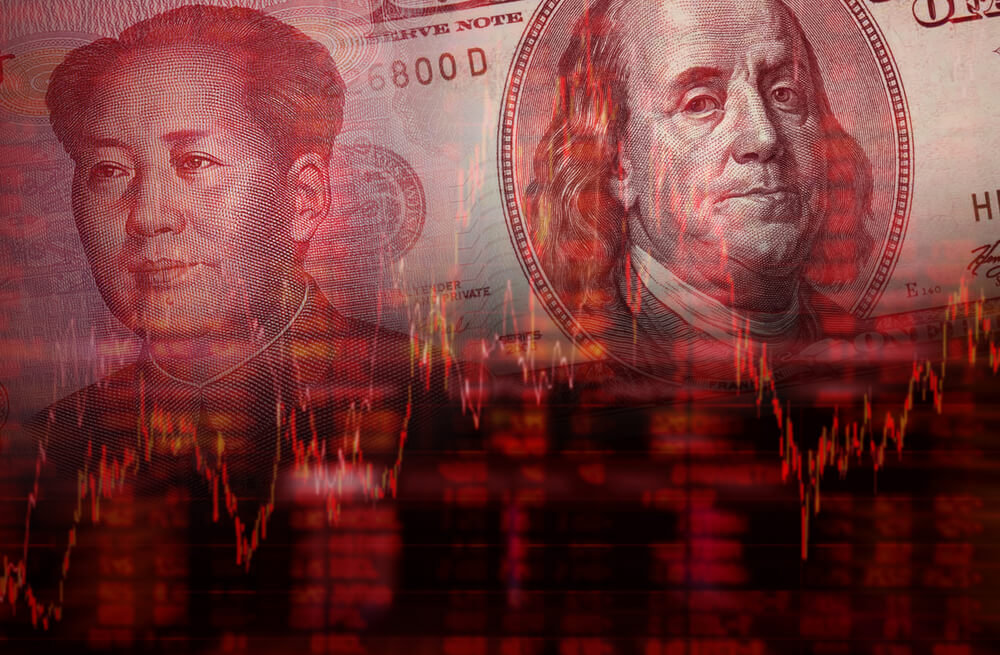The trade war between the United States and China is waging on, and with no end in sight, Goldman Sachs has a new strategy for investors taking on the challenge of trying to survive in this rocky and volatile stock market.
Goldman’s strategy revolves around buying stocks from service-providing companies like Google, Microsoft, Amazon and JPMorgan Chase & Co. while also avoiding shares in companies that produce goods, according to CNBC. Goldman believes the trade war between the world’s two largest economies is hurting share prices and fundamentals of companies that only produce goods.
“Services stocks have less exposure to trade conflict given they have lower foreign input costs that might be subject to tariffs and lower non-U.S. sales than goods firms,” Goldman Sachs chief U.S. equity strategist David Kostin wrote in a note to clients.
The tit-for-tat trade war between the U.S. and China recently escalated after another round of negotiations did not progress enough for U.S. President Donald Trump’s liking. Trump recently announced a new round of 10% tariffs on $300 billion in Chinese imports that will start on Sept. 1. China reacted by weakening their currency and halting all imports of U.S. agricultural goods. These two salvos sent markets reeling and led to the worst trading day of 2019 on Aug. 5.
Market volatility is part of the reason Kostin suggests shares in companies like Facebook or Verizon. He argues service companies have faster sales and earnings growth while also being more stable than goods companies. Kostin’s note points out that service stocks have outperformed goods-providers by 530 basis points in 2019 with 150 of that advantage coming in the third quarter.
“Stronger services inflation should also benefit those firms relative to goods firms. However, the relative valuation of services vs. goods is slightly elevated vs. history,” he added.
Breaking down the services industry a bit further, software and services along with media and entertainment are the two subcategories that are outperforming others. Goldman also has Walmart and Berkshire Hathaway in their stock portfolio.
In an interview with CNBC last week, Kostin said that Goldman is focusing more on domestically facing companies, and Goldman even created a domestic sales basket that has 50 S&P 500 stocks with the highest domestic revenue exposure.
Goldman also does not believe there will be a new trade deal between the U.S. and China before the 2020 election, and the firm lowered its fourth-quarter growth forecast by 20 basis points to 1.8% GDP after larger-than-expected reactions to the trade war.




